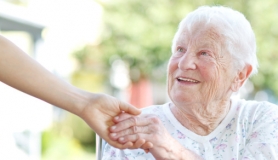Agile is a concept you’ve maybe come across in business. Agility at work and in learning (in any community or social organism, really), is about our ability as individuals and collectives to both navigate changing landscapes and intentionally create our own horizons. It’s about tinkering, testing, trying new things out to see what works and building on our collective experiences. It’s about learning and living as an unfolding, emergent process driven by curiosity. It’s about making the implicit cultural agreements that guide our actions explicit so we can see what is influencing our individual and collective behaviour, so we can co-create new ways of being together that serve us better.
To embrace agility requires acting from a place that respects the autonomy of each individual while also working to build alignment and mutual support among the group/community/team. Agility requires practicing “power with (each other)” rather than “power over (another)”. In education and parenting this means de-schooling ourselves from the notion that the adult knows best, and shifting from “teacher” of the truth to “facilitator” of the experience.
NOT LIKE SCHOOL
There are so many positive impacts from an environment that trusts the child. First of all, it doesn’t look like school. Trusting children, and the larger concept of Self-Directed Education, is not a new, innovative way to get kids to choose to do school on their own. Trusting children requires a lot of inner work from the adults who are committed to this practice. We call this deschooling. You may be familiar with how Akilah Richards’ defines it as, “shedding the programming and habits that resulted from other people’s agency over our time, body, thoughts, and actions”. The results of this are far-reaching. Compared to what we expect from a school setting, it means that some children are going to learn to read when they are four and some when they are 14. It means that some children will never study maths beyond basic arithmetic and some kids will spend years deeply engaged in comic books or video games.
Schooling has done so much to warp our idea of what is important and what is a valuable way to spend your time. Trusting children requires unlearning all of that and being present with children as the full and complex human beings that they are. The “effects” of trusting children are different for each child and vary from in the short-term vs the long-term, but broader level what you get are human beings who know who they are; understand what makes them tick and can navigate relationships more effectively. These children can learn new things throughout the course of their lives because learning was never about passing a test or pleasing an adult, but about experiencing something new or becoming more powerful. And can create meaning for themselves while experiencing the world with wonder and possibility.
“We are building toward the possibility for every person to practice self-direction, self-expression, and community co-creation as they grow”
ALLAYING FEARS
What does it mean to “do nothing”? Is that even possible? I think when people express concern that this type of education will result in kids who do nothing, what they mean is “do nothing that I consider as valuable or worthwhile”. As determined by society! This concern from parents considering an unschooling path is the crux of the deschooling work that an adult must do.
Humans are born with the biological ability (except in rare cases) to walk and talk and learn new languages all without being forced to take instruction (without any instruction, really). We are always learning and we are actually never doing “nothing”. The parental worry that their child will “do nothing” when given autonomy is pointing to the inner wounds of that adult. We need to take a look at the internalised lessons of schooling culture that have taught us that our needs, desires, and interests are secondary to the demands of those with more power than us. We likely grew up in (and probably still live in) an economic culture that taught us that our value is directly related to how productive we are, in which productivity is most narrowly defined by the goals of capitalism.
WORKING TOGETHER
The majority of days are not typical at an Agile Learning Centre, but some aspects of a day are. There are some lightweight tools and practices that help provide some structure and organisation to our time together. Each week starts with a “Set-the-Week” meeting where all community members can contribute to scheduling “offerings” (optional activities that require some level or organisation/coordinating). Each morning, small groups (6-10 people) meet to set intentions for the day and connect with each other. At the end of the day, after a period of time for cleaning, the same small groups meet again to reflect on the day and the intentions they set. In the middle of the day is when the “magic” happens. There may be scheduled offerings taking place (a game of tag, a field trip, an art project, or a maths class) and/or there may be kids organising spontaneous activities. There is, for sure, lots of playing.
My vision for the future is that we begin to understand as a society that learning is happening all the time. This radically redefines education. We are building toward the possibility for every person to practice self-direction, self-expression, and community co-creation as they grow.
Tomis has been facilitating in Self-Directed Education environments since 2009. He helped birth the first Agile Learning Center in NYC and served as the Director for three years. He now lives in Charlotte, North Carolina where he works and plays at ALC Mosaic. He has a three year old self-directed daughter!
Your questions answered
Sara Casey Taleff is founder and director of Cottonwood ALC (cottonwoodalc.org) in New York.
What is agile learning?
We use agile tools to support our youth in leading their educational journey. Learners set intentions each day using the kanban method, we verbally and visually share our plans for the day to create opportunities for collaboration and we are responsive to the opportunities that arise. We use the word agile all the time. Being agile is a practice, a skill but kids are naturally agile and agility is necessary for a thriving community.
What impact does this have on kids?
When you walk into our environment, what you notice right away is active play (by humans of all ages) and joy. Cottonwood is a really joyful place and I think the playfulness and joy has space to be free because of the foundation of trust we have in one another.
How does this work?
We are curious by nature. When given time, space, and support to explore, we do! Our learning centres are very active spaces. We are a learning community, in partnership with each other. We each have autonomy but in the context of community. We are in relationship with one another at Cottonwood so “autonomy in community” looks like connection and collaboration between young people, families, and facilitators. We value independence but not at the expense of the community. It’s a lovely dance.
What’s your vision for the future?
I wish that all conventional schools could turn into learning centres where children are free to pick and choose the classes/subjects they are interested in pursuing and all conventional educators were freed to teach what they are most passionate about. I envision every young person having a mentor/guide to support them in their learning journey and young people truly having the freedom to choose what they want to learn about it.
RESOURCES
FIND answers to your questions at agilelearningcenters.org/frequently-asked-questions/
EXPLORE A map of ALCs around the world at agilelearningcenters.org/#map
READ Free to Learn by Peter Gray, Summerhill by A.S. Neill and anything by Akilah S. Richards







